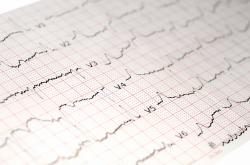Reducing Fatigue By Changing Your Lifestyle
Your lifestyles could be causing (or significantly adding to) your fatigue. How can you avoid this by making positive choices about nutrition, stress reduction, sleep habits and healthy living generally?
What lifestyle habits have the risk of leading to fatigue?
Let’s look at the day of a man with an unhealthy lifestyle which could easily lead to adrenal burnout or chronic fatigue syndrome:
Joe gets up late in the morning, still feeling slightly intoxicated from the evening before. He skips breakfast and instead brews a large pot of coffee. He goes back to bed with his computer and, although it’s Sunday, he works on it for most of the day. He has his own business and is severely stressed. He eats fast food for lunch and has fast food again in the evening. When he is not on the computer, he places himself in front of the television. He keeps going on coffee, and cola drinks, and he takes no exercise. In the evening he feels restless and when he goes back to bed, he lies tossing and turning until the morning. He wakes up feeling tired, groggy and disoriented.
Depending on Joe’s natural resilience, it may be months or years before he burns out. He may end up with adrenal exhaustion, or chronic fatigue syndrome, or just be very tired all the time. But one of these conditions will happen because he is abusing his body in many different ways. Here are some of them:
- Not taking proper nutrition in the form of nourishing regular meals
- Eating fast food
- Not reducing his stress
- Not taking regular exercise
- Not keeping regular hours for sleeping
- Using his bedroom for things other than sleeping and sex
- Drinking caffeinated drinks
- Taking an excessive amount of alcohol on a regular basis
Although you may not have a lifestyle as damaging as Joe’s, you still may have parts of your life that could become healthier. It’s worth making the effort to lead a healthy lifestyle because you may avoid exhaustion by doing so. If you are chronically tired, it’s even more important to make lifestyle changes that will allow your body to recover.
Recipes for healthy living
Here are some key tips:
Nutrition
What we put into our bodies has a direct effect on our health. It’s as important to exclude food, which has a negative effect, as it is to include vital vitamins and minerals. [Please seeNutrients that you need to be wellfor more details on this.]
In general, you should aim to avoid fast food, junk food and processed food. This is because they have all sorts of chemical additions, some of which are toxic to the body. You then have to use up energy to de-toxify them, which puts stress on your liver, and strips your body of vital minerals.
Cut down on sugar as this will cause your blood sugar to spike and the resulting fall will make you feel tired. Abolish caffeine from your life as much as possible as it stimulates the body too much and interferes with sleep. There is caffeine in coffee, as well as in soda and cola drinks and even in some prescription medication.
Try to take a number of light meals in the day. Fresh food, simply prepared, is always best.You may need to take some additional supplements. Vitamin B group is useful for a variety of conditions [Please seeThe Role of the Vitamin B group in maintaining health and energyfor more details on this.]
Stress
We all have stress in our lives from time to time. It’s important to learn how to deal with it as stress will never entirely vanish. Stressors can include: divorce, loss, separation, financial and business worries, moves, changes, and indeed anything we find challenging and don’t know how to deal with.
The good news about stress is that it can be managed by a combination of:
- Relaxation: having time each day to relax and practice some form of muscle relaxation, guided imagery, prayer or meditation is crucial. This will allow your body the time and space to recover from the negative effects of stress.
- Nutrition: all the above is true, but even more important when you’re stressed.
- Sleep: make sure your get enough quality sleep (see below).
- Exercise: gentle daily exercise is best.
[Please seeDealing with stress and tirednessfor more ideas about stress management].
High quality sleep
Broken, restless sleep which results in waking up tired, groggy and ‘scattered’ is not high quality sleep. You need a certain number of hours per night. We cycle through various phases of sleep, from light sleep, to deep sleep and finally to REM sleep. The cycles should not be interrupted and the best way to avoid this is to wake up naturally. Don’t skimp on sleep and avoid the ‘snooze’ button on your alarm clock.
Make your bedroom as dark and quiet as possible. This will help you sleep. Try to keep out of your bedroom during the day, so that it’s kept for sleeping (and sexual activity) only.
[Please seeStages and cycles of sleepfor more information.]
Creating priorities
One of the reasons for stress is a failure to create priorities i.e. not deciding what’s really important to us in life. If you were to make a list of these things, would you really put wealth ahead of health? Yet, that’s exactly what you do when you neglect sleep, exercise and nutrition in favor of work.
Create a genuine list of priorities. You may find that you can downsize and reduce your financial outgoings, so as to make more resources and time available for your recovery from tiredness.
To sum up…
Creating a healthy lifestyle is one of the best ways to avoid or reduce fatigue. Like everything, you have to be persistent, but a little progress every day quickly adds up to large steps forwards.














Leave a comment